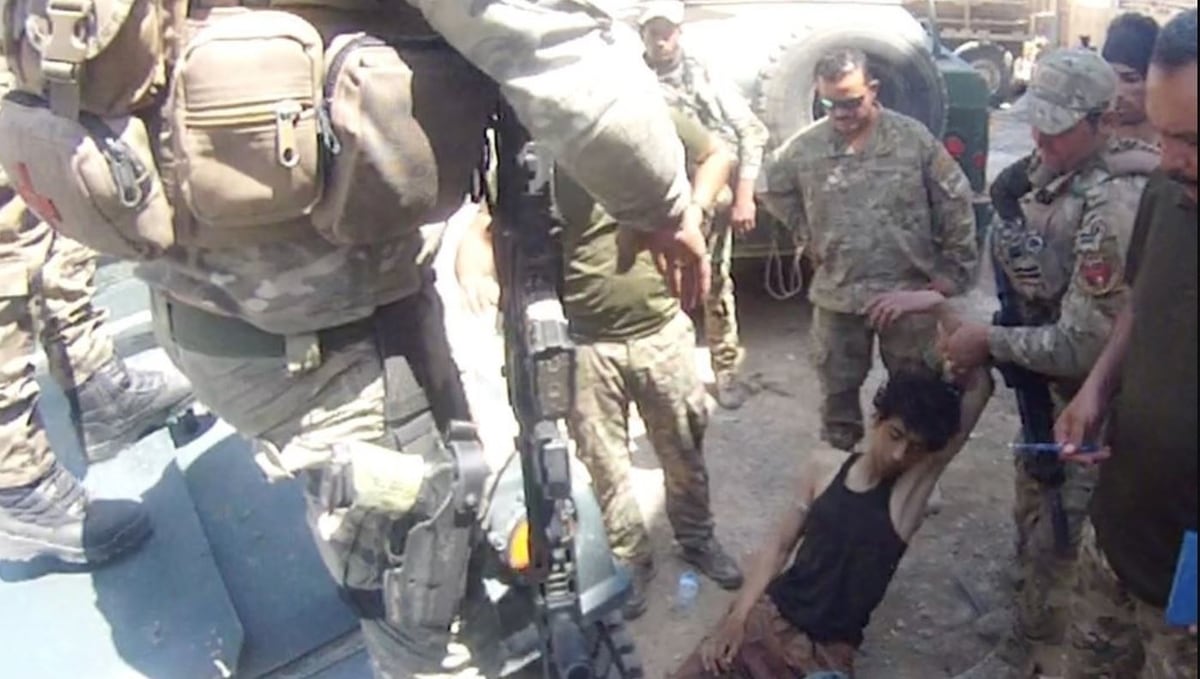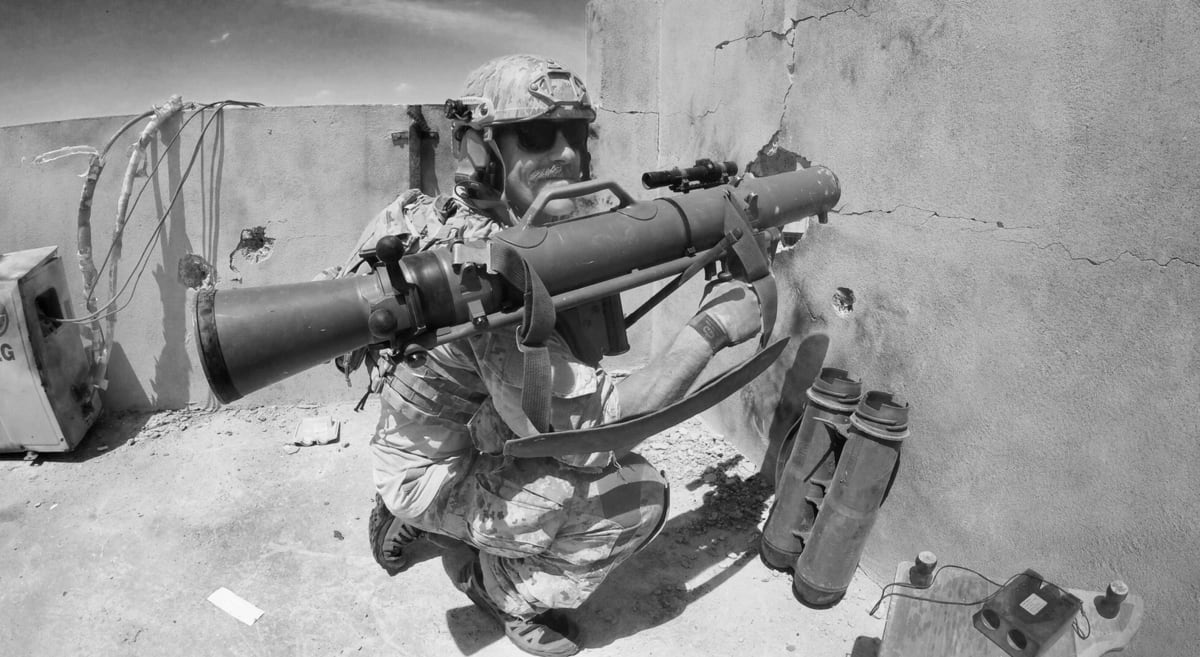Defense attorneys for a high-profile court-martial of a Navy SEAL accused of war crimes filed a motion to dismiss the lead prosecutor and possibly relieve the military judge overseeing the case Monday, citing concerns that the judge may have improperly overseen the surveillance of the SEAL’s defense team by prosecutors.
In addition to the dismissal of the lead prosecutor, the defense team is seeking a preliminary examination of the judge to understand “whether he knowingly authorized this investigation ... whether he chose to remain willfully ignorant of the facts, or whether he was misled" by the lead prosecutor and Naval Criminal Investigative Service agents, according to court documents obtained by Navy Times.
Attorneys for Special Operations Chief Edward Gallagher, 39, who is accused of murdering an injured teenage ISIS fighter in Iraq in 2017, said that lead prosecutor Cmdr. Christopher Czaplak and a NCIS agent met with Navy Judge Capt. Aaron Rugh on May 8 to explain that NCIS was investigating leaks pertaining to the case to unauthorized parties, including the media.
“This case has been hopelessly plagued by misconduct by prosecutors,” the motion filed Monday reads. “This misconduct has taken many forms but has culminated in the inexcusable and unethical use of an email tracking beacon to monitor the emails of opposing counsel in direct contravention of multiple states’ ethics opinions, including CDR Czaplak’s licensing state of New York.”
Gallagher’s defense attorney, Tim Parlatore, is seeking to recuse the lead prosecutor, and possibly others if warranted, after emails distributed to 13 lawyers and paralegals on their team — as well as one to the editor of Navy Times — were discovered to contain a hidden electronic tracking device capable of revealing the location of the user, how long a user spent on a web page, what browser was being used and other information.
RELATED

In the motion filed Monday, the defense counsel said it first believed that the court had overseen and directed the tracking of the defense counsel. However documents released to the defense counsel on May 20 paint a different story, one in which the court may have been left in the dark about the true nature of what NCIS and the lead prosecutor intended to do.
“We do not have all of the information necessary to determine to what extent the Military Judge in this case has specifically acted that would compel his disqualification,” the defense counsel wrote in the motion. “Based on current information and belief, the Military Judge’s actions of in this case, at the very least, objectively call his impartiality into question.”
Navy Region Southwest spokesman Brian O’Rourke declined to comment.
The judge’s summary of the May 8 meeting stated that NCIS intended to embed code within a 2-page document and to email it to the defense team and post it in various government-access-only locations.
The judge’s summary does not indicate who the intended target of the surveillance technique was supposed to be. However, the defense counsel said that the document was specifically targeted at the defense counsel. The “bait" document was entitled “Gallagher-Brady Giglio Notice,” and purported to contain exculpatory evidence that could enhance the defense’s case.
“Based on the titles and contents of these ‘bait’ documents, it is clear that this investigation was unfairly focused primarily on members of the defense team,” the motion reads. “It is unclear whether the Military Judge asked for more details about the 2-page document, or if he went so far as to make a recommendation to CDR Czaplak and Mr. Evans [NCIS agent] as to what the 2-page document should purport to be.”

The defense counsel said it was also unsure whether the judge understood what the investigation he was signing off on was actually able to do.
After a May 22 hearing on the issue, the defense counsel said that the judge “did not seem to understand the purpose or function of the IP addresses, how they would actually be collected, or how the entire investigation or ‘method’ would be conducted.”
“If the Military Judge authorized an investigation with such little knowledge, that is, at the very least, quite unnerving,” the motion reads.
The defense counsel also filed a motion to disqualify lead prosecutor Czaplak over the allegation that he overstepped his role as an attorney and assumed one as an investigator by personally sending the email with the imbedded code to the entire defense trial team and various other individuals.
“In truth, it appears that CDR Czaplak had a greater role in the investigation than he wanted the Military Judge to believe, or that the Military Judge knew that CDR Czaplak was involved, but declined to state as much,” the motion reads.
Although the motion focused on Czaplak, the defense counsel also wrote that the court should conduct a fact-finding hearing to determine whether his co-counsel should be disqualified as well.
As it stands, Gallagher is slated to begin a court-martial beginning on June 10 at Naval Base San Diego, where he faces charges of premeditated murder of the ISIS teenager and a pair of shootings tied to the alleged deaths of an elderly man and a young girl — accusations he denies and insists they were made to frame him.
The defense team also filed a motion Sunday asking the military judge to dismiss all charges against Gallagher, alleging other instances of misconduct committed by prosecutors and NCIS agents, including knowingly hiding or misrepresenting key facts in the court-martial case that could exonerate Gallagher.
Much of the evidence justifying the motion to dismiss the case was provided to Navy Times, including video footage of the alleged murder scene.
Kyle Rempfer was an editor and reporter who has covered combat operations, criminal cases, foreign military assistance and training accidents. Before entering journalism, Kyle served in U.S. Air Force Special Tactics and deployed in 2014 to Paktika Province, Afghanistan, and Baghdad, Iraq.





